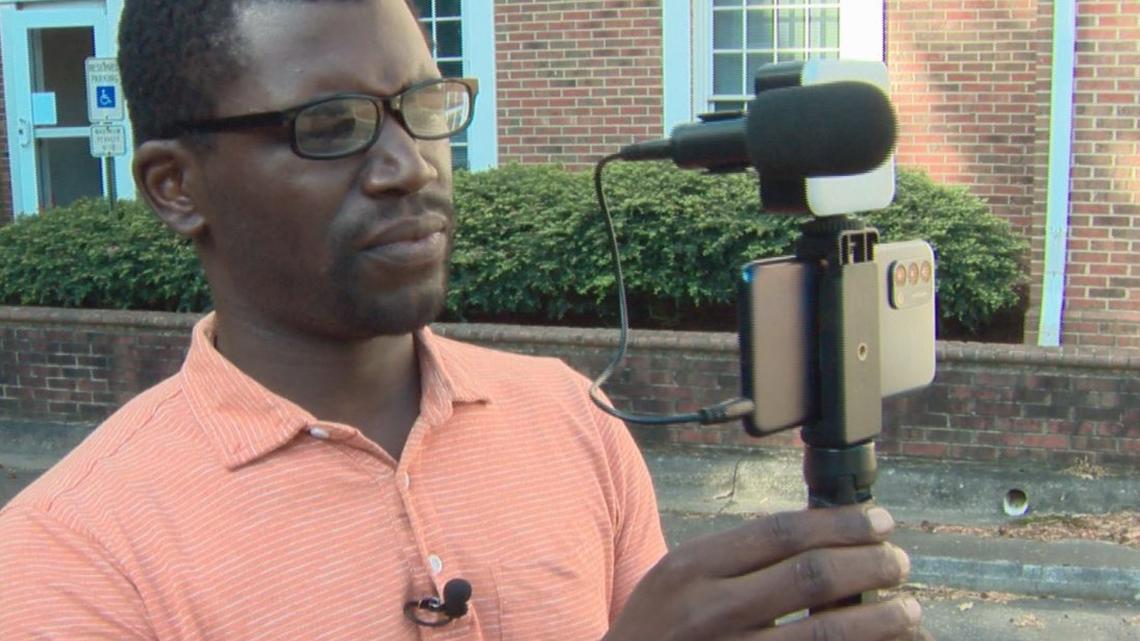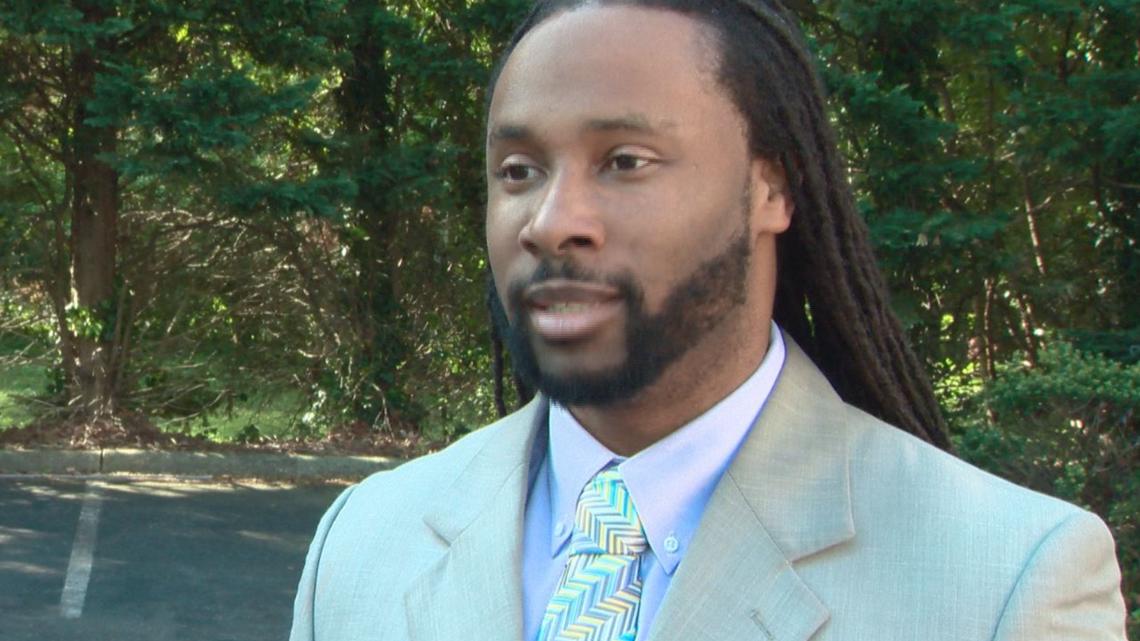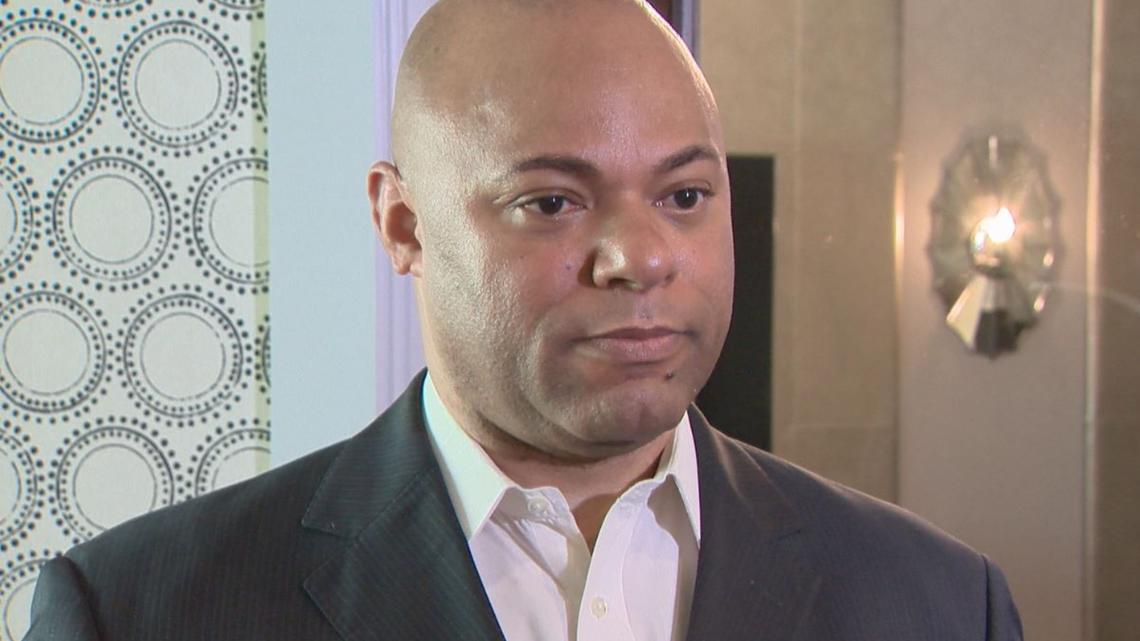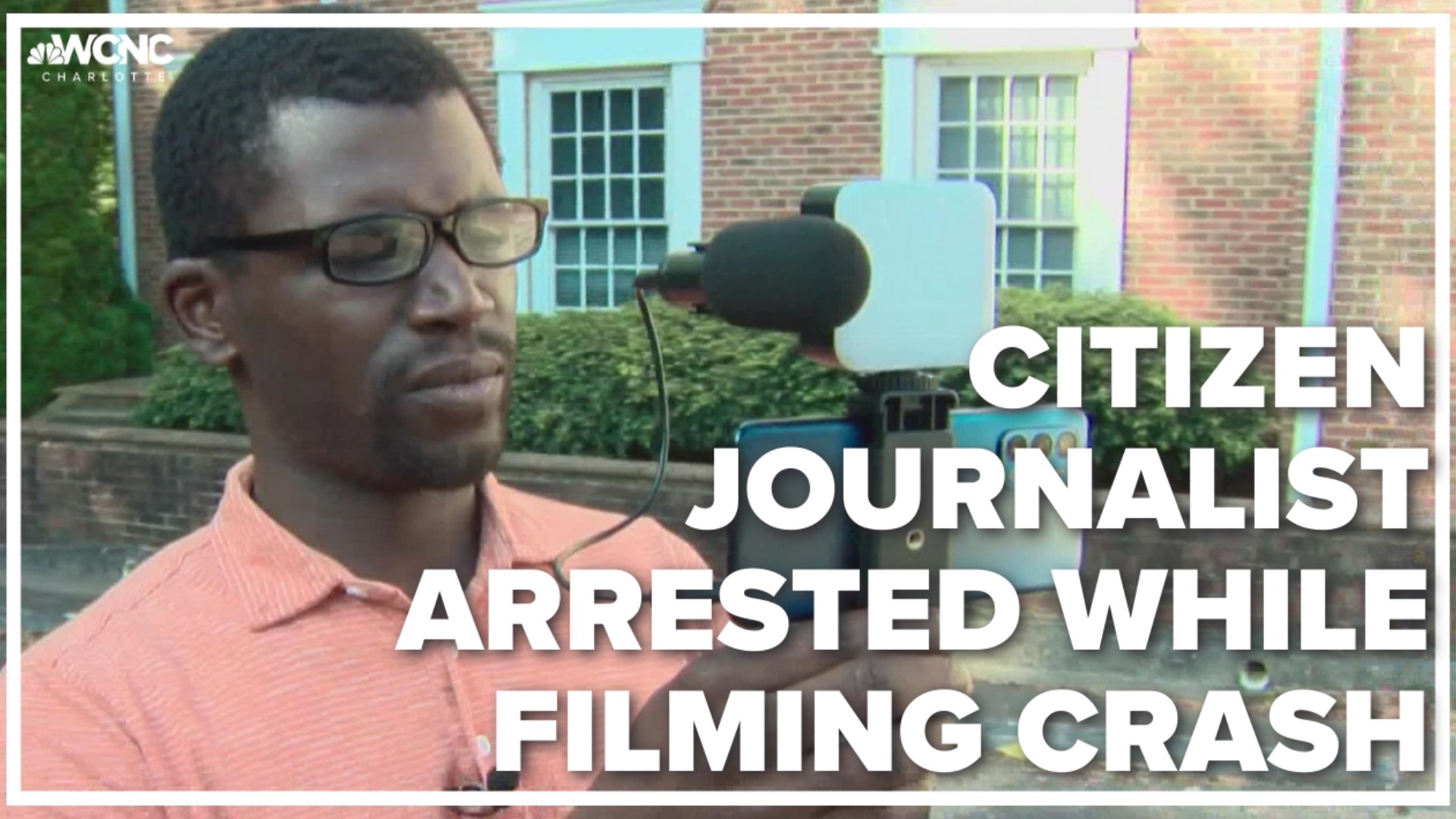DALLAS, N.C. — What started with a man filming a routine crash in Gaston County ended with police turning off his camera, charging him with a crime and taking him to jail.
"I felt like I was robbed," Thomas Reid told WCNC Charlotte of his September 2021 encounter with the Dallas Police Department. "They took away my freedom."
A Gaston County judge later found Reid not guilty in March, according to now expunged court records.
"It feels great that I actually won, but it's sad that it had to come to this point to where a judge had to decide," Reid said. "It was humiliating. I have a broken heart because I truly support law enforcement, because we need them."


Reid considers himself a citizen journalist. His hobby is documenting the police with his camera and ensuring officers follow the law at all times. However, Reid is the one who stood accused of breaking the law when he decided to record the aftermath of a small-town crash while on his way to pick up food.
His video from that day initially shows mutual respect, but then someone took issue with his filming. An emergency responder delivered the message to Reid, who stood his ground. Police stepped in and the conflict only continued to escalate. Police eventually shut him down.
A warrant charged Reid with resisting, delaying and obstructing a public officer. The warrant states that Reid refused "multiple commands by officers and emergency personnel to leave the scene of an accident, thus creating delays in investigating the accident."
Reid says the allegations aren't true.
"Never one time was I told to leave," he said.
Reid's attorney, Dominique Camm, is well-versed in civil rights law, which gives people the right to record as long as they're not too close and not interfering. He believes this is a classic case of police overstepping.


"They thought they could get away with it," Camm told WCNC Charlotte. "It seems as if this was more or less of a situation in which someone wanted him to leave and because he would not do what they said in the way that they said it, they used law enforcement to try to remove him from the scene. The officer had the opportunity to give him a citation, he could have given him a summons, but he chose to actually physically arrest him. The officer could have thought differently and said, 'You know, this is kind of small. I don't need to take this guy here. Ruin his job, ruin his reputation over something this small,' and still, he proceeded to do all of that."
Among the many lessons George Floyd's murder taught the country about policing in America is the critical role citizen journalists play, but Reid's experience serves as a reminder that filming law enforcement can be risky. He wants to take this opportunity to educate law enforcement about the law.
"These are the laws, whether you like it or not, our feelings aren't part of it," he said. "At the end of the day, the law is what matters."
While that is true legally, former FBI agent and federal prosecutor M. Quentin Williams said our feelings actually have everything to do with how this kind of situation ends.
"Ego versus ego creates chaos," Williams said. "What we say is, 'Bring humility to the engagement. Check your ego at the door.'"


Williams founded a nonprofit that teaches police and the community how to build better relationships. He said it all starts with humility.
"I'll be respectful, you be respectful," Williams recommended. "Let's start from there."
In Reid's case, Williams sees fault on both sides.
"I think everybody could've handled that better," he said. "I bet you they could have worked it out."
He said Reid should've swallowed his pride, taken a step back and still captured video, but from a distance. He said that approach would have enabled him to zoom in and accomplish what he set out to do without added tension.
Williams' review of the video identified Reid as the one who escalated the situation. However, he said the officer should've pulled Reid aside and talked to him 1-on-1 to diffuse the conflict. Instead, the video shows neither backed down.
"Now it's ego against ego," Williams said. "There is no battle that one will win with an officer on the street. We tell people this all the time with traffic stops. You will always lose, 100% of the time, because the officer has the power to arrest and can arrest you.
"You go through the system and you might be acquitted, but you still went through the system and that's still a loss. Find a way to accomplish the outcome without provoking and without escalating."
Reid's criminal case may now be expunged, but his experience isn't as easily erased.
"It felt embarrassing when they took my phone from me, placed me in handcuffs and I have people just staring at me," Reid said. "I would like an apology, a sincere apology.
Dallas Police Chief Robert Walls declined to talk on camera or offer an apology.
"I feel that my department handled the situation within policy and had enough probable cause to present the charge before the Gaston County Magistrate to be granted an arrest warrant for Mr. Reid," Chief Walls said over email. "At this time I feel that there is no need to do an on-camera interview (pertaining) to Mr. Reid's case since it has already went through court as you advised and he was given his due process. I will contact Mr. Reid and speak to him if he wants to discuss this and ask any questions...he along with anyone can exercise their First Amendment rights in Dallas or anywhere in our great Country. So long as they exercise a safe distance as to not interfere with any investigations, I gladly welcome them to use their First Amendment Rights as that's what our country was built on. It only helps Law Enforcement in my (opinion) to have recording to see things from all angles and aspects."
Contact Nate Morabito at nmorabito@wcnc.com and follow him on Facebook, Twitter and Instagram.
WCNC Charlotte is committed to reporting on the issues facing the communities we serve. We tell the stories of people working to solve persistent social problems. We examine how problems can be solved or addressed to improve the quality of life and make a positive difference. WCNC Charlotte is seeking solutions for you. Send your tips or questions to newstips@wcnc.com.

